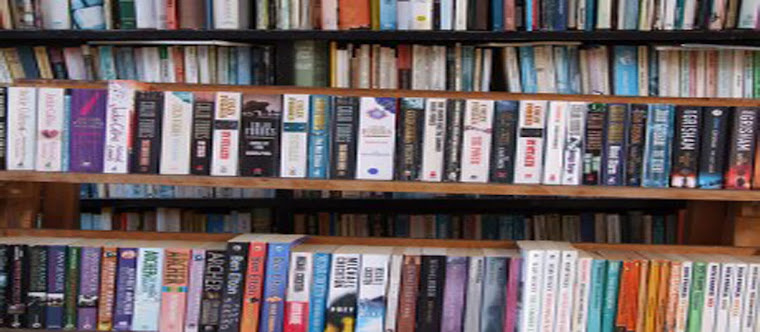Sunni's Artwork
I do a lot of reading about writing, if I’m not working on my own WIP, or reading a book to review. Somehow, this has become my whole life in the last few years.
Naturally, I do a lot of research for stories I’m writing, but it seems I’m doing much more than I ever thought I would. In the course of research for my freelance work, I have ended up on some amazing sites with information that’s useful in all writing.
Today I thought I’d share an exercise about developing characters. Unfortunately, I can’t point to any particular resource here because I gather info from many and formulate my own strategy.
It is very important to keep characters straight and to give them a voice of their own that stays consistent throughout your novel. One way I’ve found to do this is by using a list of sorts. I’m hooked on lists because they keep me straight in all aspects of my life. In writing, you’ll find if you have a few secondary characters they won’t stick in your mind as well as the main characters and it’s easy to mix up features, style, beliefs, backgrounds, etc.
A good way to start is making a list that you can keep close by to refer to if you are stuck, or to use in the editing phase. It is important to know everything about your character before you get too far into the book. You need to make a note of all the pertinent information, even if you won’t use all of it in your story. I used to write all this info on scraps of paper I kept in a WIP file with the name of the work at the top. This get s bit cumbersome after awhile when you need to find something quickly and you have to search for the right scrap of paper.
This evolved into sticky notes that I had everywhere – on my office wall behind my desk, all around my monitor, etc. Generally, anywhere I could stick one. I’m the queen of the sticky note and use them to remind me of everything – not just for my writing.
I finally decided upon a better method by keeping a pre-designed form on my computer. This works well for me, it may work for you too. It will take awhile to come up with your master, but when you do you can keep it and use it over and over for each story you write – just name it something different each time using “save as.”
I use Word and tables for this. I’m sure you could do much the same thing in other word processing programs. It works to create two-three tables on the page for all of your data, or you can turn your page to the horizontal setting so you have more space. I find I need more categories across the top, hence three tables on a page, and I use the left side to list my characters down the page.
Now the question is what do I need to know about each character? List these things across the top of your master page, or in your different tables. Character’s name, hair color and style, eye color, age, build, nationality, where and how raised, mannerisms, beliefs, habits – bad and good, annoying or positive traits, occupation, life goals, schooling, siblings and family, other background info, etc. You get the idea. The first column to the left is for each character in your novel. You can even color code your names if you like to distinguish between your primary and secondary characters. This is a good way to start out for each book.
Of course, as you are making your master copy, you will not be filling out any of this character info, only organizing your categories for later use. Keep in mind that you can always separate this form into two-three sections, if you have a few characters. Doing this may make it easier for you to fit in more background info for each character.
Do the same thing with places in the story, if you have a lot of them to keep straight. This would be on a separate form of course.
When you’ve finished, be sure to save these as your master copies before you start using it for your first story.
If you try this, let me know how it works for you. I’m always interested in hearing other ways of doing things too.








